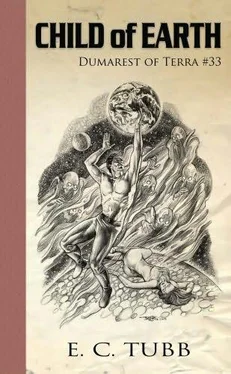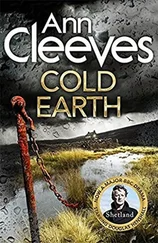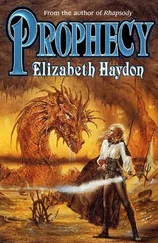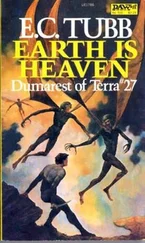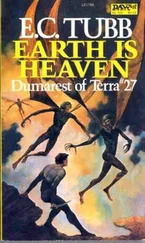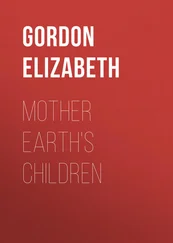E. Tubb - Child of Earth
Здесь есть возможность читать онлайн «E. Tubb - Child of Earth» весь текст электронной книги совершенно бесплатно (целиком полную версию без сокращений). В некоторых случаях можно слушать аудио, скачать через торрент в формате fb2 и присутствует краткое содержание. Жанр: Фантастика и фэнтези, на английском языке. Описание произведения, (предисловие) а так же отзывы посетителей доступны на портале библиотеки ЛибКат.
- Название:Child of Earth
- Автор:
- Жанр:
- Год:неизвестен
- ISBN:нет данных
- Рейтинг книги:4 / 5. Голосов: 1
-
Избранное:Добавить в избранное
- Отзывы:
-
Ваша оценка:
- 80
- 1
- 2
- 3
- 4
- 5
Child of Earth: краткое содержание, описание и аннотация
Предлагаем к чтению аннотацию, описание, краткое содержание или предисловие (зависит от того, что написал сам автор книги «Child of Earth»). Если вы не нашли необходимую информацию о книге — напишите в комментариях, мы постараемся отыскать её.
Child of Earth — читать онлайн бесплатно полную книгу (весь текст) целиком
Ниже представлен текст книги, разбитый по страницам. Система сохранения места последней прочитанной страницы, позволяет с удобством читать онлайн бесплатно книгу «Child of Earth», без необходимости каждый раз заново искать на чём Вы остановились. Поставьте закладку, и сможете в любой момент перейти на страницу, на которой закончили чтение.
Интервал:
Закладка:
“A cat has one tail more than ‘no cat’. No cat has nine tails. Therefore a cat has ten tails.” Dumarest added, “I assume you can recognize the flaw in that particular syllogism?”
“A test, Earl?” Shandaha sipped at his wine. “The term ‘no cat’ has been used in different contexts to gain a false conclusion. Clarify the premises and the falsity is made apparent. If we choose to syllogise it is essential that the two premises be accurate if the conclusion is to hold any value. I assume you know that. I also assume that you have a reason for raising the subject. I hardly think that you can have a strong interest in what, basically, is an intellectual game?”
Dumarest said, “One game is much like another. The object is, simply, to win. How to win can be a variable.” He added, “I assume my memories no longer entertain you.”
“No, Earl. Bore me a little, perhaps, as Chagal’s did. Childhood can be a barren time though yours, I admit, is stranger than most. Perhaps a little too strange. Memories can become distorted, laced with wishful thinking, dreams and illusions induced by hardship and deprivation. Later events could help to fashion a blend of truth and imagination born of reality and hallucination.”
“You are saying?”
“I offer you a suggestion. I have claimed that your experiences could not belong to your early years on this planet. You insist they did. But was it this planet at all? How can you be positive that you were born on Earth?”
“I am certain of it.”
“Think about it, Earl. We have spoken of syllogisms. Don’t fall into the common error of those who need to believe so strongly they deny the existence of negative proof.”
“Such as?”
“Earth is a harsh world,” said Shandaha. “You were born on a harsh world. Therefore you were born on Earth. Is that what gives you such conviction?”
“I have memories.”
“You were very young.”
“Old enough to remember,” insisted Dumarest. He felt the familiar prickle of his skin that warned of the proximity of danger. Shandaha was too confident, too assured-a gambler certain he held the winning hand. But what game was he playing? “The moon. The terrain all scarred and torn by ancient wars. The scattered ruins of bygone ages. Damn it, man! I remember!”
“Yes,” said Shandaha. “So you claim. Now tell me, Earl how far did you ever travel from your village?”
“What?” Dumarest frowned, thinking, remembering. His host did not wait for an answer.
“A young boy. Physically weak, barefoot and forced to cover rough terrain. Five miles out and the same back? A full day’s effort. You agree?”
“So?”
“In total, assuming your people stayed in the same area and that you took a different route every day, you would have covered an area of less than a hundred square miles. In that area you claim to have seen the scars of ancient wars and the scattered remains of bygone civilizations. You claim that Earth, the planet of your birth, is so scarred. Am I correct?”
Dumarest said, stubbornly, “I know what I remember.”
“That is the puzzle.” Shandaha lifted the decanter, filled the goblets, handed one to Dumarest. The act of a gracious winner. “The terrain all scarred and torn by ancient wars. The scattered ruins. How could you have seen them, Earl? Such things could only be seen from space and you didn’t even know what space was. So how could you describe what you had never seen?”
He smiled over the rim of his goblet. The winner of a game that Dumarest, as yet, knew nothing about.
CHAPTER FOUR
Sleep was a misted honeycomb of tiers and shifting planes, of cells filled with glowing hues of amber and gold, silver and ruby, of chrome and dusty orange. Colors which held an enticing brilliance, fading to flare again in rainbows of novel configurations, to yield to the embracing softness of nacreous mists and tinted wreaths of drifting smoke.
Places holding strange shapes and broken shards of elaborate constructions. Of veiled faces and bizarre landscapes. Of presences that rose to walk beside him to vanish as he turned to face them, to become shadows of colored mist, wisps of gossamer cloud.
Dumarest stirred, knowing he was nude, resting on softness, draped by thin fabrics that held the subtle scent of springtime sweetness. The memory of Shandaha was strong as was the puzzle he had set, the elusive manipulation of words and logic that had threatened long-held convictions. There had been too many words and too much wine, if wine it had been, the lambent emerald seeming to dissolve in his throat to leave a glowing euphoria. One that had led to a glowing world of sleep-induced dreams populated by ghosts and haunted by the unknown.
Somehow he must have left the chamber to strip and get into bed. Or had the bed come to him and had he ever been clothed at all? Questions without answers. Too many puzzles each presenting a disturbing mystery. It was time he found some solutions.
He moved and felt a momentary nausea then was standing, facing an eerie scene of lowering night edged by the dull red glow of the western sky. One he had seen before when on Gath and he looked again at darkness illuminated by moving lanterns carried on rafts, held by tourists, attendants, accompanying guards. A wending line of men and women heading north across a sea-edged plateau towards the fabled mountains of a world holding a unique formation. A spectacle that intrigued the woman standing at his side.
“It looks like a snake,” she said. “Or a centipede. Or an eltross from Vootan. They are composed of seven distinct types of creature united in a common symbiosis. Have you ever seen one?”
The Lady Seena, spoiled ward of the Matriarch of Kund, slender, beautiful, wearing a fortune in gems and rich fabrics. Beside her, dressed in his traveler’s garb, Dumarest was a grey shadow.
He made no comment, eyes searching the column, seeing things he had seen before and was seeing again by a trick of woken memory, the figment of a dream.
“You did not answer me.”
He was her companion. An attendant she regarded as a paid servant. She expected a response. Obediently he said, “No, my lady. I have never seen a eltross.”
“You should. They have a certain charm.” A subject forgotten as she found a new interest.
“That man!” Seena pointed to a figure stooped and struggling beneath a heavy burden. “What does he carry?”
Dumarest told her. She stared in amazement. “A coffin holding the dead body of his wife? You can’t be serious.”
“It is so, my lady.”
“But why?”
“He is probably very attached to her.” He added, dryly, “I understand that some men do feel like that about their wives. They cannot bear to be parted.”
“Now I know that you are joking.” Seena was impatient. “It is hardly a subject for jest. Why is he carrying such a burden? Why did he bring her with him? What can he possibly hope to gain?”
“That is the question, my lady.” Dumarest looked at the woman at his side, seeing again what he had seen so long ago. Knowing what was to come, what she would say. “I am not sure as to his reason but there is a legend on Earth that, on the very last day, a trumpet will sound and all the dead will rise to live again. Perhaps he hopes to hear the sound of that trumpet-or that his wife will hear it.”
“But she is dead.”
“So he claims.”
“But if she is dead how could she hear?” She frowned her irritation. “You fail to make sense,” she complained. “I have heard of no such legend. And I have heard of no such world. Earth!” She laughed at the concept. “Do you really expect me to believe there is such a place?”
“You should-it is very real.” He began walking so as to keep abreast of the column, pausing to allow her to catch up, continuing when she did. “I was born there. I grew up there. It is not a pleasant world. Most of it is desert, a savage, barren expanse in which little grows. It is scarred with old wounds and littered with the ruins of bygone ages and lost civilizations. But-”
Читать дальшеИнтервал:
Закладка:
Похожие книги на «Child of Earth»
Представляем Вашему вниманию похожие книги на «Child of Earth» списком для выбора. Мы отобрали схожую по названию и смыслу литературу в надежде предоставить читателям больше вариантов отыскать новые, интересные, ещё непрочитанные произведения.
Обсуждение, отзывы о книге «Child of Earth» и просто собственные мнения читателей. Оставьте ваши комментарии, напишите, что Вы думаете о произведении, его смысле или главных героях. Укажите что конкретно понравилось, а что нет, и почему Вы так считаете.
